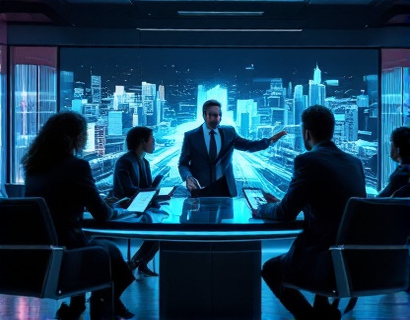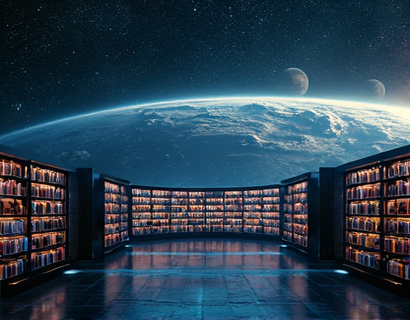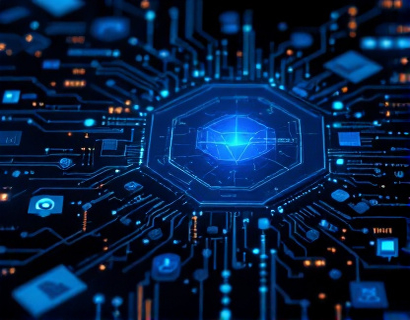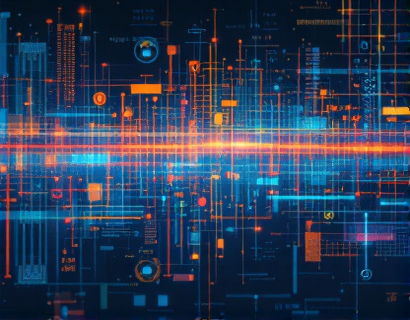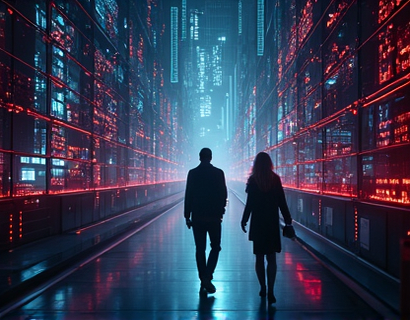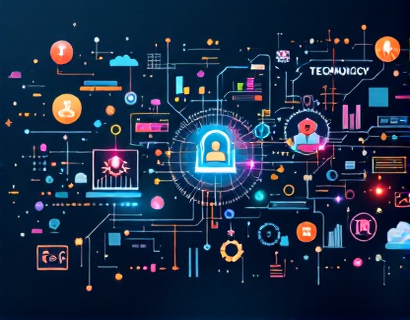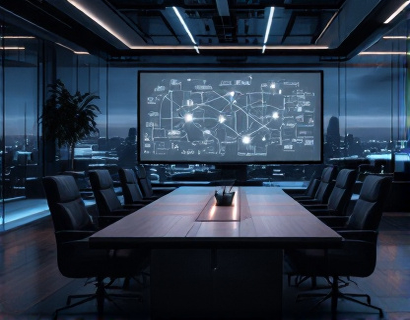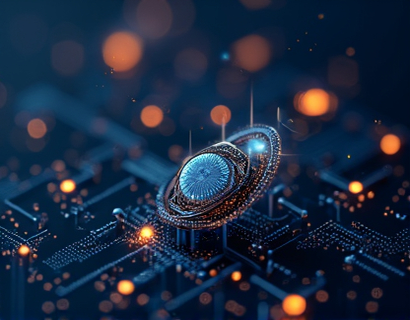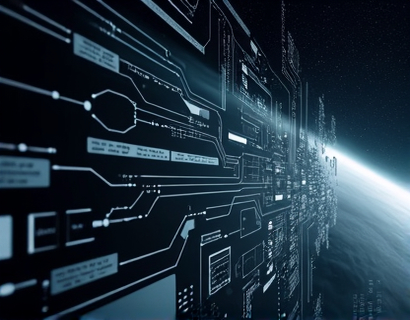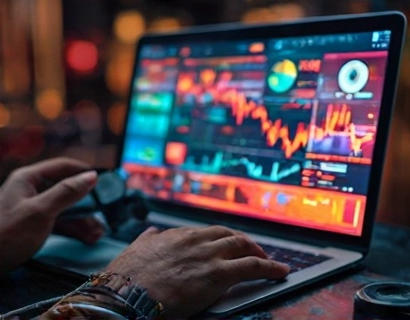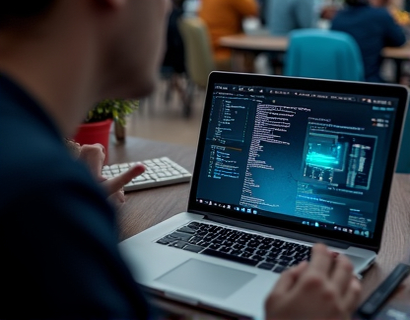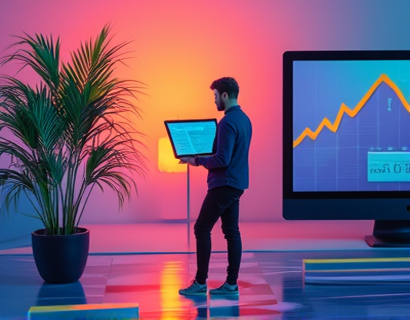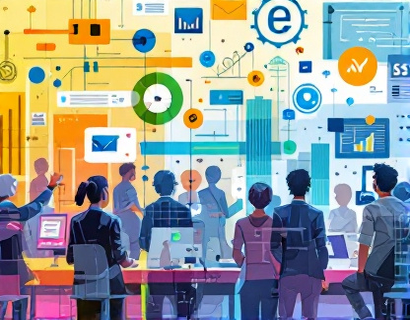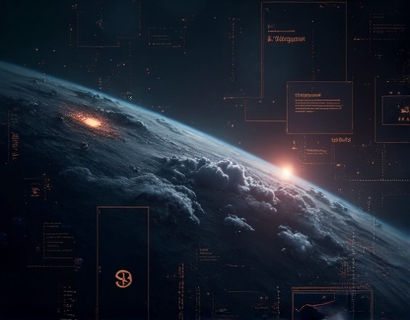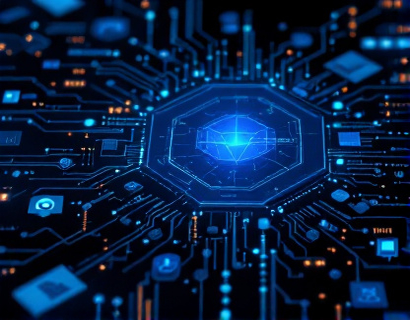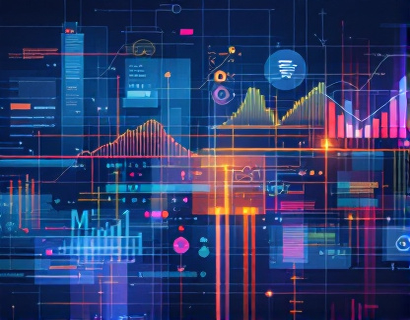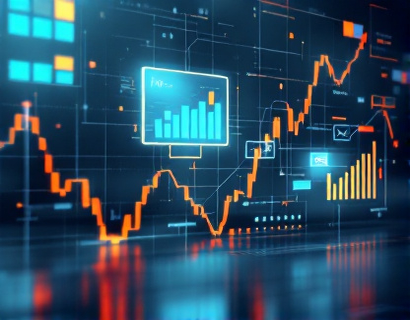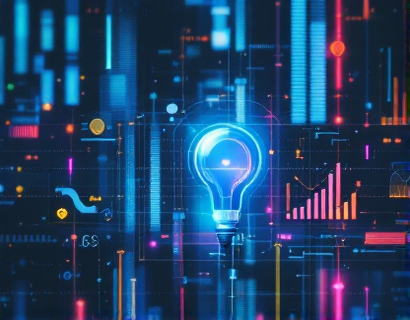Decentralized Productivity: Unlocking the Potential of AI and Crypto Integration for Next-Gen Business Solutions
The integration of Artificial Intelligence (AI) and cryptocurrency is paving the way for a new era of decentralized productivity tools. This synergy is not just a technological curiosity but a transformative force that is redefining how businesses operate and collaborate in the digital space. As we explore this intersection, it's crucial to understand the foundational technologies driving this change and the practical applications that are emerging.
At the heart of this revolution is blockchain technology, the backbone of cryptocurrency. Blockchain offers a decentralized, transparent, and secure ledger for transactions, which is ideal for creating trustless environments where intermediaries are minimized or eliminated. When combined with AI, which excels in processing vast amounts of data to provide insights and automate tasks, the potential for innovation becomes immense.
The first step in harnessing this potential is to grasp the basics of AI and blockchain. AI, particularly machine learning and natural language processing, enables machines to learn from data, recognize patterns, and make decisions with minimal human intervention. Blockchain, on the other hand, provides a distributed database that ensures data integrity and security through cryptographic techniques and consensus mechanisms.
One of the key benefits of integrating AI with blockchain is the creation of decentralized applications (dApps). These applications run on a blockchain network and leverage AI to perform complex tasks autonomously. For instance, a decentralized marketplace can use AI to match buyers and sellers based on preferences and historical data, all while ensuring transactions are secure and transparent.
Another significant advantage is the enhancement of data privacy and security. Traditional centralized systems are vulnerable to breaches and data misuse. Decentralized systems powered by AI and blockchain can significantly reduce these risks. AI algorithms can detect anomalies and potential threats in real-time, while blockchain's immutable ledger ensures that once data is recorded, it cannot be altered without consensus.
The concept of decentralized identity management is another area where AI and blockchain intersect. Traditional identity verification processes are often centralized, cumbersome, and prone to fraud. Decentralized identity solutions use blockchain to store and manage user identities, with AI assisting in verifying and authenticating identities through biometric data and behavioral patterns. This not only enhances security but also empowers users to control their personal data.
In the realm of supply chain management, the combination of AI and blockchain can lead to unprecedented levels of transparency and efficiency. AI can predict demand, optimize inventory, and streamline logistics, while blockchain ensures that every step of the supply chain is recorded and verifiable. This reduces fraud, delays, and errors, making the entire process more reliable and cost-effective.
The financial sector is also witnessing a transformation through decentralized finance (DeFi) platforms. These platforms use AI to offer automated trading, risk management, and financial advisory services, all on a blockchain-based infrastructure. This democratizes access to financial services, reducing the need for traditional banking institutions and lowering transaction costs.
For businesses, the integration of AI and blockchain can lead to more efficient internal processes. AI-driven automation can handle routine tasks, freeing up human resources for more strategic activities. Blockchain can ensure that these processes are transparent and tamper-proof, building trust among stakeholders. For example, in project management, AI can predict project timelines and resource allocation, while blockchain can securely record and verify milestones and payments.
The healthcare industry stands to benefit greatly from this integration as well. AI can analyze medical data to provide personalized treatment recommendations, while blockchain can secure patient records and ensure compliance with data protection regulations. Decentralized health platforms can also facilitate secure sharing of medical research data, accelerating the development of new treatments and drugs.
In the context of digital collaboration, decentralized tools powered by AI and blockchain can revolutionize how teams work together. Traditional collaboration platforms often suffer from data silos and lack of transparency. Decentralized platforms can provide a unified workspace where AI assists in task management, communication, and document collaboration, all while ensuring data integrity and privacy.
One of the challenges in adopting these technologies is the need for a skilled workforce capable of developing and maintaining these systems. However, the growing interest in blockchain and AI is leading to a surge in educational programs and resources. Online courses, boot camps, and community-driven projects are making these skills more accessible, fostering a community of tech innovators and early adopters.
Another consideration is the regulatory landscape. As decentralized technologies gain traction, governments and regulatory bodies are beginning to take notice. While there is a risk of over-regulation stifling innovation, proactive engagement with policymakers can help shape a favorable environment for these technologies. Companies and developers must stay informed and adapt to changing regulations to ensure compliance and sustainability.
The future of decentralized productivity is not just about technology; it's about creating ecosystems that prioritize user empowerment, security, and collaboration. By leveraging AI and blockchain, businesses can build robust, scalable, and resilient systems that adapt to the evolving digital landscape. The potential is vast, and the journey has just begun.
As we look ahead, the integration of AI and cryptocurrency will continue to drive innovation in various sectors. From smart cities to education, the applications are endless. The key is to stay informed, embrace the change, and contribute to building a decentralized future that benefits all.



